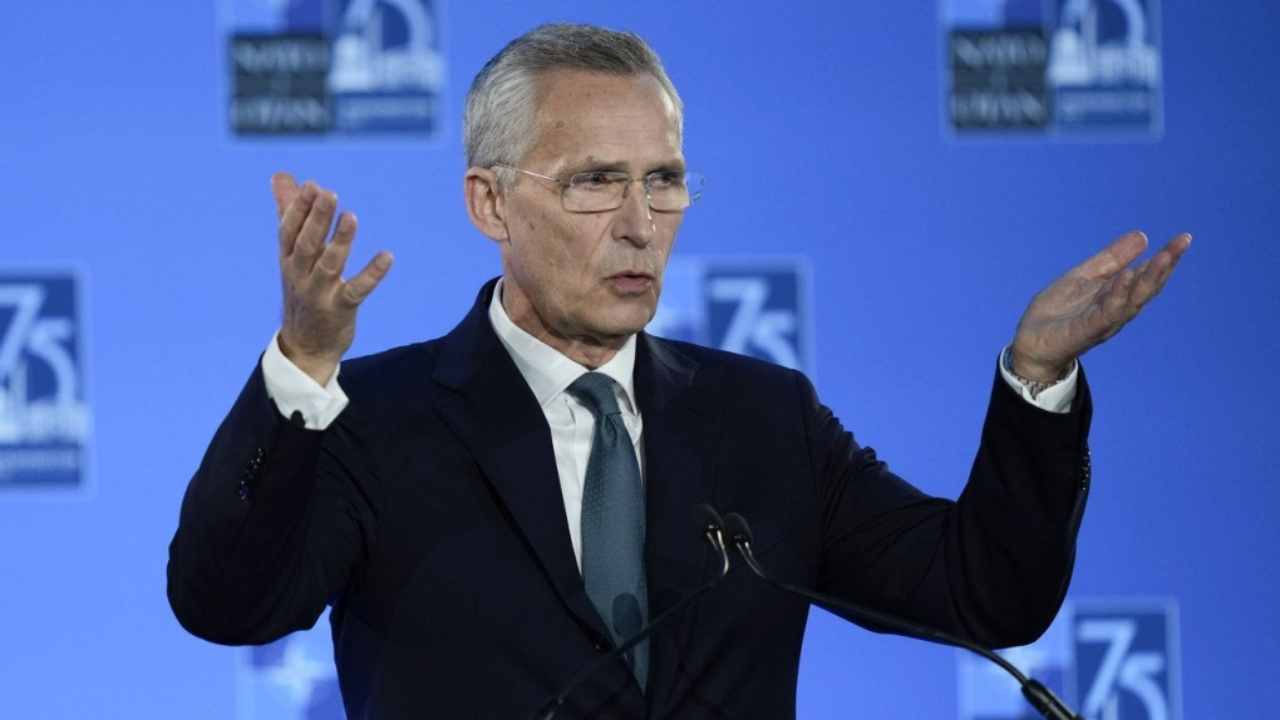
Jens Stoltenberg, NATO's Secretary General, makes gestures as he speaks at a press briefing during the NATO summit in Washington on Wednesday, July 10, 2024.
NATO countries issued a strong condemnation of China's role in aiding Russia's actions in Ukraine, labeling Beijing a "decisive enabler" of the conflict. During their summit in Washington, the alliance expressed deep concerns over China's nuclear capabilities and activities in space. The communiqué, approved by all 32 NATO members, underscored China's growing significance as a focus of collective security worries among European, North American, and Indo-Pacific nations.
The NATO statement accused China of significantly supporting Russia's military efforts through an unrestricted partnership and extensive backing of Russia's defense industry. This, NATO argues, amplifies the threat posed by Russia to its neighbors and to overall Euro-Atlantic security. The alliance called upon China, a permanent member of the UN Security Council, to immediately cease all forms of material and political support to Russia's war in Ukraine. NATO emphasized that China's involvement in Europe's largest conflict in recent history could severely damage its international standing and interests.
Jens Stoltenberg, NATO's Secretary-General, highlighted that China supplies critical equipment, microelectronics, and tools enabling Russia to manufacture missiles, bombs, aircraft, and other weapons used in the Ukrainian conflict. This, he noted, marks the first collective statement from NATO allies explicitly condemning China's role in supporting Russia.
In response, the Chinese embassy in Washington denied accusations that China contributes militarily to the Ukraine crisis, emphasizing its adherence to strict controls over dual-use exports and portraying its trade relations with Russia as legitimate and aboveboard.
Experts viewed NATO's statement as a significant diplomatic escalation, noting that it signifies Europe's alignment with the United States in criticizing China's support for Russia. They observed that NATO's unified stance underscores growing international solidarity against Beijing's strategic maneuvers, which seek to divide Western Europe and Asia-Pacific nations.
The summit also addressed broader concerns about China's systemic challenges to Euro-Atlantic security, echoing similar apprehensions voiced in previous years. NATO raised alarms about China's malicious cyber activities, hybrid warfare tactics involving disinformation, and its expanding capabilities in space. Moreover, the alliance expressed worries about China's aggressive expansion and diversification of its nuclear arsenal, including the development of more sophisticated delivery systems.
China's embassy responded by asserting its responsible handling of security issues with transparent policies and dismissed NATO's portrayal of a "China threat" as futile. Beijing firmly opposed NATO's attempts to vilify China through regional conflicts, warning against escalating tensions into a new Cold War.
President Joe Biden, speaking at the summit, stressed NATO's need to remain vigilant against Russia's increasing military capabilities, facilitated by cooperation with China, North Korea, and Iran. The summit also saw leaders from Australia, New Zealand, Japan, and South Korea participating as NATO partners, underscoring the alliance's global outreach and collaborative efforts.
In its final declaration, NATO reaffirmed the importance of its Indo-Pacific partners and pledged to enhance cooperation on shared security interests. The alliance announced plans to launch initiatives focusing on cyber defense, countering disinformation, and advancing artificial intelligence to support Ukraine amidst ongoing conflict.















